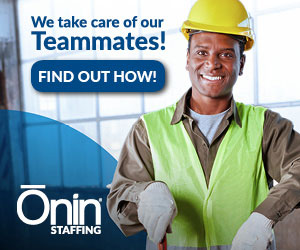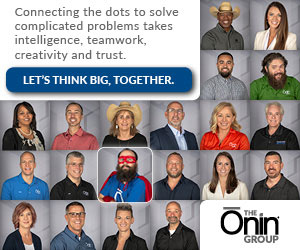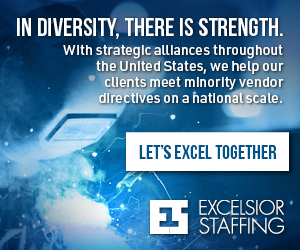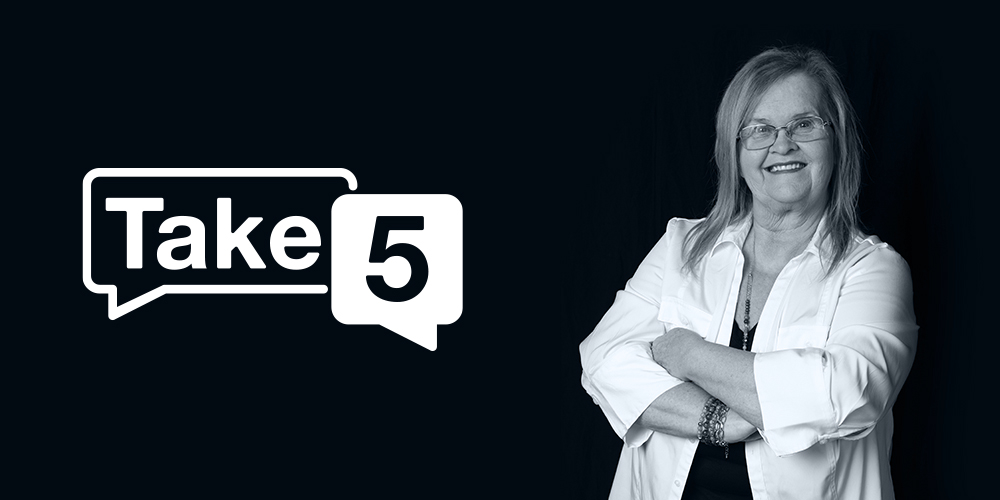
Interview by Shane Minor
Photos by Stephanie Hudson
When it comes to evaluating leadership in terms of innovation and performance, Sandy Liles effortlessly secures full marks. As the indomitable force propelling Ōnin’s Batesville, Arkansas branch forward, she has earned her status as a legend in her own right, commanding respect and admiration with her people-first approach and unwavering passion for unlocking untapped potential.
In 2021, confronted with the challenge of devising a fresh approach to attract and retain talent in the region’s fiercely competitive labor market, Sandy fearlessly stepped up to the plate. Already leading one of Ōnin’s most successful branches, she spearheaded the implementation of the revolutionary Flex Program, which empowers clients to build flexible, supplemental teams. It’s already evolving the light industrial and manufacturing sectors for a new era of modern work.
But, it’s Sandy’s remarkable blend of humility, unwavering determination, and genuine compassion that sets her apart, making her a role model for leaders in every industry. Aside from her outstanding accomplishments, Sandy also remains firmly rooted in her identity as a servant leader, devoted to empowering others. Her tireless work ethic fuels tangible results and nurtures meaningful relationships.
In this interview, uncover the wisdom and insights of a leader who has the secret sauce for making the impossible a reality. Join us as we delve into the remarkable journey of Sandy Liles, an extraordinary leader with an unwavering commitment to excellence and transformative impact.
This is Take5.
Shane
Welcome to Take5. I am here with Sandy Liles, the Area Manager of Ōnin Staffing in Batesville, Arkansas. I’m glad you’re here. Right out of the gate, what has been your greatest accomplishment professionally up to this point in your career?
Sandy
Ōnin Staffing in itself. I have worked at many different jobs — I have struggled through many different jobs.
I felt like I didn’t have a place. I didn’t have a sense of belonging. I just had an obligation to get up and go to work because that’s what you’re supposed to do, and that’s what I was raised to do. If you want to eat, you have to go to work.
I’ve been in some good roles during my life, but, absolutely, hands down, nothing compares to what I founded with Ōnin Staffing.
Shane
So, what did you find here?
Sandy
The values that we live for — the values that this company holds as a standard, and the care I get from the people all across this company.
From the most entry-level person to the most executive — everyone at Ōnin treats you with the same respect. I’ve never seen a company so full of people who truly care about other people and who want to see other people do well. People at Ōnin want to see other people advance.
I’ve never encountered any negativity or efforts to bring others down. You feel at home at Ōnin. You feel welcomed.
Shane
I would dare say that we have the kind of culture where, if you see somebody pulling others down, you know that person is not going to last very long. We do tend to take the people-first approach pretty seriously. That’s a really good thing.
So, what’s been your favorite accomplishment or your greatest accomplishment since you’ve been at Ōnin?
Sandy
I think working with Hugh, one of Ōnin’s managing partners, on the Flex program was my favorite accomplishment. I helped to get the Flex program going, something Hugh entrusted to my team in Batesville.
He had many expectations about the impact he wanted that program to make, and he trusted us to build what he had in mind and run it in a way that benefited both our Teammates and our clients.
Shane
Tell us a little about Ōnin’s Flex program.
Sandy
In a nutshell, Ōnin’s Flex program allows clients to build a sustainable workforce and address their worker shortages. The Flex program allows companies to use part-time, flexible workers managed by Ōnin to fill the gap. The program allows Teammates to pick their shifts, get paid within 24-hours, and get Ōnin’s health insurance.
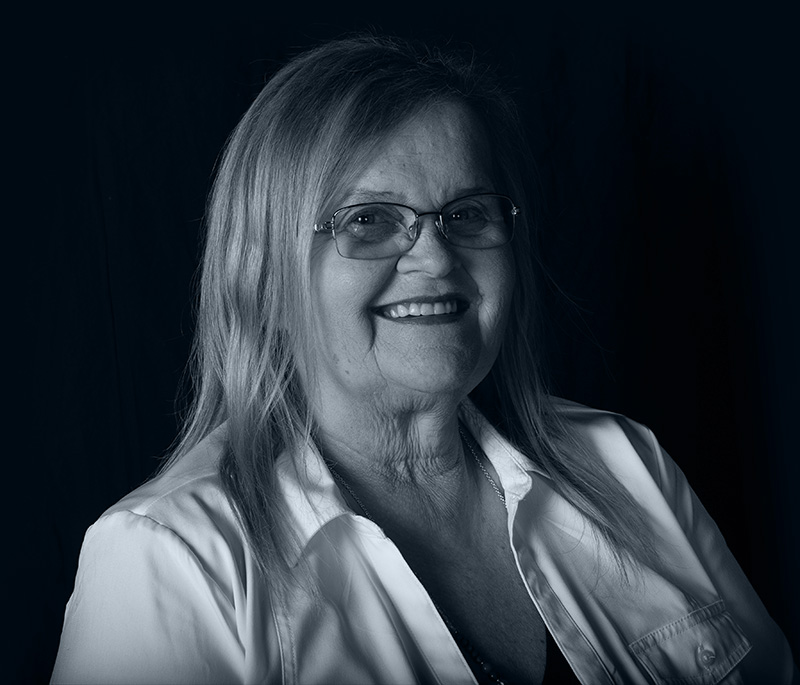
You’ve got to have a team that is willing to stand behind you and with you and do what is asked of them. And you’re not going to find a better team than Batesville, Arkansas girls at Ōnin Staffing.
Shane
Your influence and the influence of your branch have really impacted the Ōnin Flex Program. Being trusted to create that program — one that is pretty revolutionary in the light industrial and manufacturing industries as a whole — is big. You had to put yourself out there. How is Flex going?
Sandy
The Flex Program is wonderful, and the results have been exceptional. We had high hopes, but the results are beyond what we even expected. But, it was challenging to get started. We couldn’t jump the gun.
We had to wait until it was the right time and until everything was set to launch. We had some incredible Ōninites — Jay Gomez, now our Flex Program Coordinator, and Efrain Gomez, our Director of Poultry Operations — who were a major part of our team getting the Flex Program going and keeping it going. Branch Manager Misty Hennings was also right beside me throughout the Flex launch — I would have been lost without her.
We knew the time was right because we also had a great major client that was all for the Flex program. They were ready to partner and innovate to find new solutions. They wanted to take it slow at first just to see how things lined up and make sure all the ducks were in a row before we ever jumped in there and started it. But once Flex got started, man, it started.
Shane
For the contingent workers we serve, Flex is a huge, huge deal for them. Some folks from Ōnin’s accounting team said to me, “I had no idea that we were impacting people that much with what we’re doing.” That was cool in and of itself.
Giving people the opportunity to choose their own schedule and earn next-day pay is really that impactful. Ōnin Flex is an incredible thing. It’s not only a good accomplishment for you, but for your branch and Ōnin at large.
Sandy
Absolutely. We’ve transitioned several full-time people into the Flex program because they were going to school. We had workers who were parents that struggled to find a babysitter or shared childcare with a co-parent who was also employed, so they couldn’t come to work every single day — but they did want a job. Flex allows them to work, and that’s big. There are a lot of people who don’t have family who can help watch their kids and run errands. Without some flexibility, they aren’t empowered to contribute at work.
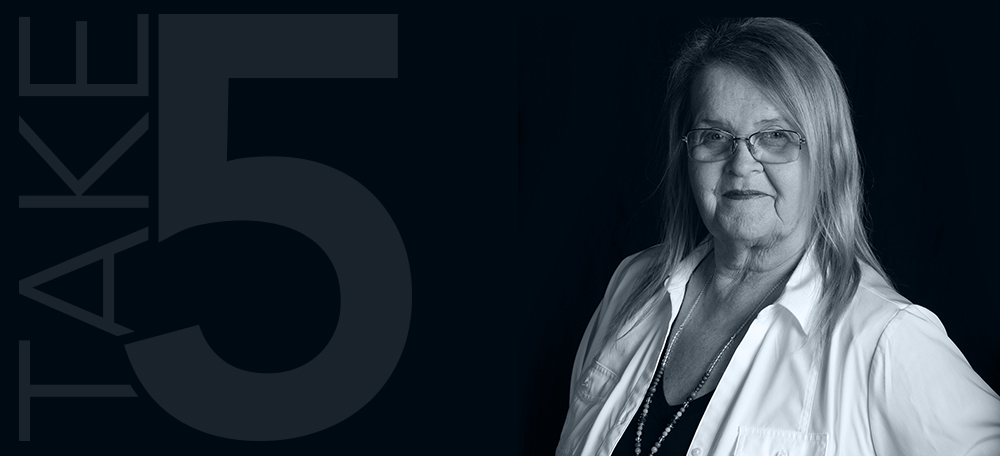
Shane
I’m thinking about those scenarios people are dealing with that you mentioned — a person who is in school, a person who has childcare issues, people who aren’t high-income earners. There are many people who are forced to act independently of their family. Childcare is ridiculously expensive and can have schedule conflicts with shift times. This group of people may be dealing with challenges from a financial or health perspective. They have to find ways to run their lives without much assistance. That’s especially true for the population workers we serve. People need time to manage everything.
The Flex program really does help serve a population that needs the most help to contribute to the workforce. They have fewer resources to work with than others. This gift of time is a big, big deal for them. Ōnin’s Flex program has created this well, flexibility, for their time, and time is the most valuable asset any of us have.
It’s great that you guys have piloted this program so well. I predict the Flex Program will have incredible growth over the next five years.
Sandy
This is how the workforce is changing — it’s evolving to be flexible. Workers feel like they’re in control. They’re in charge of their lives, and they’re in control of their work situation. They can come and go when they want to. The biggest stipulation is you must work one eight-hour shift a week to stay in the program.
This approach has worked out tremendously for both workers and clients. Many employers can’t find enough people. Flex allows these clients to work with people who need flexibility in order to contribute. It softens the worker shortage and helps people manage their lives in a way that is sustainable.
When it comes to finding a staffing partner, clients need a partner that is willing to do the work, because there’s a lot to building a Flex program. There’s a lot to hiring that people don’t realize if you’re not involved in it. Many people don’t realize what all goes on — the scheduling, coordination, payroll and technology aspects needed to manage this program are big lifts. You’ve got to have a team that is willing to stand behind you and with you and do what is asked of them. And you’re not going to find a better team than the Batesville, Arkansas girls at Ōnin Staffing — I’ll tell you that.
Shane
I believe it. So this next question is the opposite of the other one. What is your favorite failure — one that taught you an important lesson or put your life on a new trajectory?
Sandy
Don’t wait. Don’t spend your whole life spinning your wheels. In life, you have to know that every day is a process. Every day you go through, you’re picking up more and more, and you’re learning more and more. You have got to find the place where you need to be.
With my career at Ōnin, I have never been happier in my work life than I have been for the last — it’ll be 10 years. The amount of support I have at Ōnin is just unreal, and that’s what you need to succeed.
My biggest failure is not doing what I wanted to do — taking jobs just because I had kids and I knew I had to work. Don’t wait too long for yourself. Yes, you’ve got a family to take care of. Absolutely. But do some things for yourself. Help yourself.
Shane
Do you look at your life and career until you got to Ōnin and feel like you didn’t take care of yourself?
Sandy
I just did what I had to do to get by and what I had to do for my family to get by. My husband worked out of town, so I had the responsibility of my children. For most of my life, I’ve worked two jobs. I’d pick my kids up after school, and they’d go to work with me at a Quick Mart or after my first job.
I have been in the chicken business for a long time with different companies, but poultry wasn’t like it is now. I have people who walk into our office after we’ve hired them and say, “I don’t think you understand what you’ve done for me. You’ve just opened the door for me.” I’ve even had people who want to talk about God and religion just because we’ve offered them a job.
Well, I don’t think that’s a coincidence. I think God sent them to us to help. I think that’s what we’re supposed to be doing — we’re supposed to be helping people.
Shane
Love your neighbor, right? I think we do that pretty well. Everyone at Ōnin has heard the Ōnin legend of the time we had a Teammate who did not get paid on time and accurately, and our managing partner jumped on a plane to personally give the Teammate their corrected paycheck. The plane fare cost more than the paycheck, but that Teammate was relying on that paycheck.
Integrity is one of our values — those things just set Ōnin apart. I can’t think of many places where that kind of thing happens.
Sandy
No. What our leadership does for us is incredible— they don’t have to do it. This is a job, but you’re offered great things, and you are presented with opportunities without having to ask for them. I’ve been here for 10 years, and I have to pinch myself sometimes. For my first five years, every time the regional management would visit, I’d think, “Am I getting fired today?” because this opportunity seems too good to be true.
Finally, our regional manager told me, “Sandy, every time somebody starts to come down, you call me to ask if it’s your last day. Look at your wall. You have 36 plaques for awards you’ve earned back there. I don’t know how to get you out of the mentality you’re in. You’re not going anywhere. Nobody’s coming down there to fire you.”
Shane
For some of us who have worked plenty of places before we got to Ōnin, we know things can be pretty cutthroat and kind of brutal. I’ve had crazy, horrible bosses. When I came here, it took me a long time to believe it was real. This place is really unique and really special.
Sandy
Oh, absolutely. I mean our COO and our managing partners — they are everyday people who you can sit down and talk with. You don’t feel inferior to them. They make you feel at home — they want you to feel that. It’s just unbelievable what all they do.
Shane
So, your favorite failure is in line with this next question, but maybe you can elaborate a little bit more: What is one piece of advice you would give your 20-year-old self?
Sandy
I would tell my 20-year-old self to stop and smell the roses. Take time for yourself and do as much for yourself as you can because nobody’s going to do it for you.
Everything I’ve learned has been through hands-on experience. I have no schooling — I’m a 12th-grade graduate, and that’s it. I’ve taken a few HR courses here and there.
You can’t wait for somebody else to open the door for you. You have to go out there, and you have to open that door for yourself and have more confidence.
Shane
That’s really good advice to give your 20-year-old self or your 20-year-old child. That’s a tough lesson to learn.
Sandy
It is a hard lesson to learn, and I was raised to believe that you had to work. That’s just what you did — you worked and paid your bills. My parents didn’t discourage me from pursuing a line of work. It’s just back then, I didn’t care. I was more concerned about getting married and starting a family, that type of thing.
I didn’t realize when I got married and had kids that I’d still have to work too. I never thought about all that combined together. But I got lucky. My oldest child, Jennifer, is a nurse practitioner. She has told us, “Thank you for raising us to know that if we want something, we have to work for it. We don’t have to sit here and wait for somebody to give it to us.”
Shane
Let’s say you were ready to retire, and you had to hire your replacement. What are some non-negotiables that person would have to have in order to be successful in your role? Batesville, for those of you who don’t know, is a monster branch and does a lot of work.
Sandy
I’m thinking of the term “work ethic.” You have to have a good work ethic. You have to be willing to give things up to get what you’re looking for and get from point A to point B. Not everybody is going to be happy with what you’re doing. But at Ōnin, if you want to work on something, it’s always negotiable. If you’ve got an idea, it’s good to share it.
Shane
I’m hearing you say that your successor would have to understand what the goal is and give up the right to be right in order to achieve what they need to.
Sandy
Yes. Some people won’t accept you. It doesn’t matter. You don’t need everybody to be happy with you in order for you to do a good job. But, I would look for somebody with integrity. Somebody who is going to be honest and prepared to be unafraid of taking on the next challenge, whatever problem they give you.
A non-negotiable characteristic someone could not have is dishonesty. At Ōnin, we run a business. You have to be honest for it to work.
I want everybody to be happy, and I want every situation to have a happy ending, but we all know that’s not going to happen all the time. As a leader, you have to be able to take the good with the bad.
Shane
Honesty is a bigger deal than people realize, especially when you’re dealing with the challenges you face at a branch level. We’ve all seen the person who says, “Things are great. Things are fine,” when things are burning down around them. Wearing rose-colored glasses and sugarcoating a situation won’t get you where you need to be. The ability to be honest with yourself is non-negotiable, but it’s tough.
Sandy
Being honest is so hard. Some managers hide behind passive-aggressive remarks instead of telling someone they are not doing a good job. Delivering a hard truth isn’t easy, but I’ve never understood when somebody comes into your office and wants to know what’s going on, what you’re doing, and telling you that they’re watching you. You can tell if a person is struggling or not based on their numbers. It would be better if they pointed at you and just said, “Hey, I don’t like this result.”
As a leader, that’s how I feel when people look at my numbers. If the numbers need to come up, what do you need me to do to help you? How can we overcome what’s going on here? That’s the way I feel — there’s no need to create distrust. If you need help, all you have to do is open your mouth and ask for it. At Ōnin, everybody has opportunities and resources. Asking for help doesn’t mean you need to leave your job — it just means someone is going to come and help you.
I have people who walk into our office after we’ve hired them and say, “I don’t think you understand what you’ve done for me. You’ve just opened the door for me.”
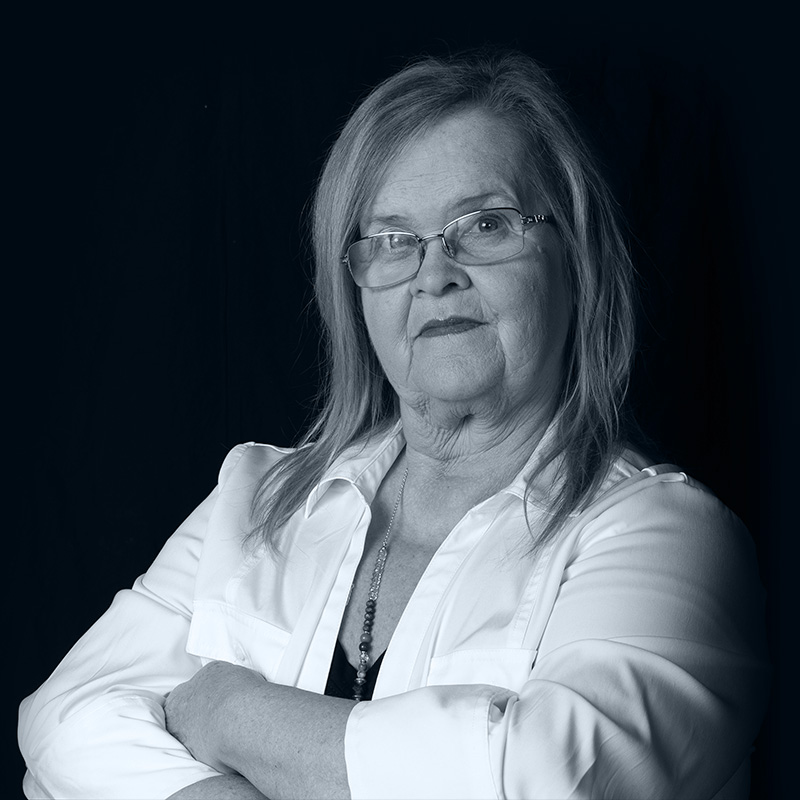
Shane
I’ve actually heard our COO, Jim Weaver, use this line a million times, and I use it with my own team. One of the few things I’ve actually seen Jim get upset about is people not asking for help. I’ve heard him say it this way: “When you’re banging your head against the wall, the solution is not to do so harder and faster. It’s to ask for help.” And that stuck with me, and I definitely think there are leaders here who just can’t seem to do that, and I watched them struggle more. Whereas if you have an issue, we’re going to know about it, and we’re going to know about it quickly.
Sandy
Yes, that’s just the way it is. My success with Ōnin has not just been a result of me. I have a wonderful team in Batesville. If it weren’t for them, I wouldn’t be where I’m at. If they want to progress in this company, I’m going to be the first who says, “Look at this person, and check them out.” I hate to lose someone who is great because they add so much to the team and I can say, “We’ve done this, and we’ve done that.” But letting someone progress is good, and once it’s done, it’s like, “Whew, boy, wasn’t that good.”
Shane
You learn to trust the process. It’s funny, though. I really do like this trend that we’ve seen lately at Ōnin, where people from the field are coming to work at Ōnin’s Home Office, and people in the Home Office are going to work out in the field. I think over time, the more we integrate, the more ingrained our teams become, and the stronger Ōnin is going to be. It’s really cool to watch. But I have to say, my successes are not my own either. I have a wonderful team. We have a great IT department. I really can’t even begin to describe everything they do for all of us.
Sandy
The IT team blows me away. If I send an email and ask for something or try to explain something, they’re going to call me and say, “Well, we don’t know what you’re talking about, ma’am,” so I just pick up the phone and call. That’s a no-no, but I just call them anyway. Not one time in this whole 10 years have I ever heard a bad word or had a bad talk with anybody in IT. They know I’m crazy, they know I have crazy requests, and they know I don’t know anything about computers. They have to walk me through it, but this is the most cordial bunch of people I have ever met in my life. It doesn’t matter — from little to small to large — no problem is too big for them, and they don’t act like you’re a bother.
Shane
You’re a great leader. What would you say to a new leader here who is maybe in their first leadership role? What would you say to someone who is a brand-new leader, someone who doesn’t work at Ōnin, who is suddenly leading people?
Sandy
My advice is to get to know your team. Get to know who you’re dealing with. Never act like you’re better than anybody ever. We’re all cut from the same cloth. The more we help each other, the more success you’re going to have. I help people, and our team helps people in our office, and those efforts impact our region, which impacts the whole company. It’s a win-win situation as long as everything is going like it’s supposed to.
I do know being a good leader is a hard role and a long road, but I’m telling you, at Ōnin, it’s just a different scenario. You have so many angles and so many different places you can turn to for help anytime you need it.
Shane
So, this question is so great for you because you’ve been here for 10 years. The landscape in the workforce has changed a lot in the last decade. We spend time talking with people who are a little bit more removed from the day-to-day reality of working with modern workers than you are. Many sit in offices and think about what’s happening in the workforce, but they’re not someone who is out there in the field coming face to face with the workforce every day. You’ve seen a lot of change over the last 10 years. But, from your perspective, what do you think is on the horizon for the workers in the industrial sector over the next 10 years? What do you think is going to happen?
Sandy
Well, I’m with you that this goes back to the Ōnin Flex program. The Flex program offers flexibility. It offers the ability to work one or two days a week and get by. They can make arrangements for their kids or make arrangements to do another job. We work with many Teammates who are working at other jobs, and they get burned out. Working one or two days a week with Ōnin Flex and then working their other job the other three days is what they want. They have a “break it up” mentality, so it doesn’t feel like they’re doing something repetitive every day.
Shane
Work can get monotonous. Working in the industrial sphere isn’t easy — it’s hard work. It’s not just hard work physically — it’s harder work mentally than I think people recognize.
Sandy
I really look forward to seeing more and more companies pick up a flexible approach to work. We’re pioneering this program in the light industrial industries, but other industries are moving towards flexibility, too. I do feel like the new, flexible way to work is coming, and it’s not far off.
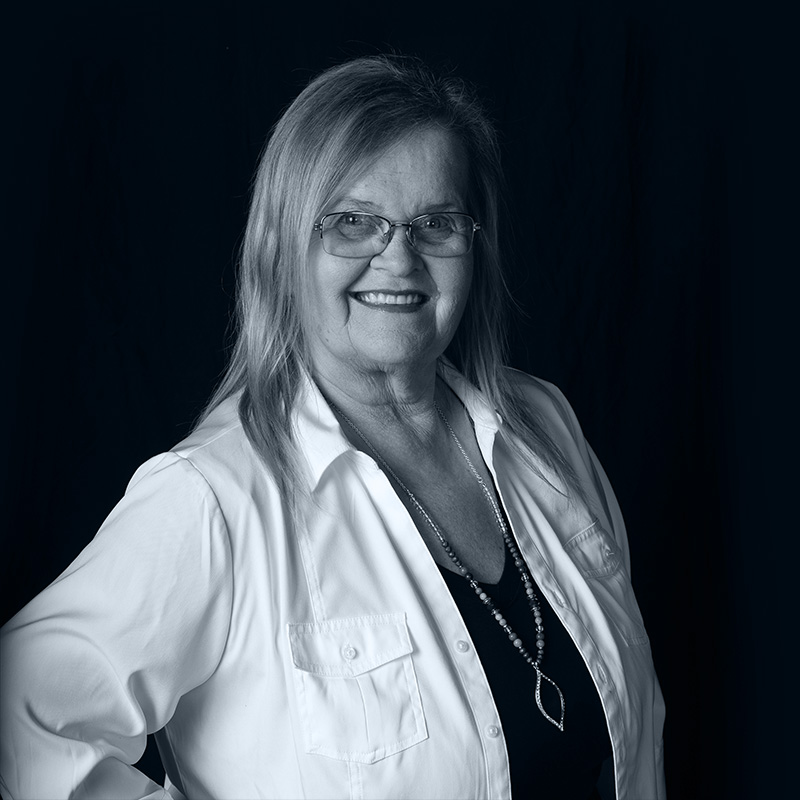
You can’t just wait for somebody else to open the door for you. You have to go out there, and you have to open that door for yourself and have more confidence.
Shane
I tend to agree. We started seeing it with companies like Uber and DoorDash, and those kinds of gig programs. People who are doing that stuff — who know how to do it well and who have figured out how to really work the system — can make a living.
Sandy
That’s another thing that’s sad, though. Some workers have the mentality of, “I just need to pay this and this, and then I can have all this free time,” but you have to start saving up for that rainy day when you’re not going to be able to do what you’re doing now. It’s exciting when companies offer so much opportunity that someone can really get on the right track, especially as a young person.
Shane
Sandy
Exactly. And we’ve got a few of those.
Shane
Oh yes, and I think as we get more of that, we’ll see that more of the hourly-worker category open up to us. It won’t just be workers with a high school diploma or less. We’ll have those who are in college — some more kinds of folks — coming on. I think Flex is going to really broaden our horizons, and most of all, it’s going to help us serve our main population of that hourly workers with a high school diploma or less. We’re going to see workers and clients really well served by the Flex program for all the reasons we’ve talked about.
Well, that pretty much wraps us up. Is there any parting wisdom you want to leave us with?
Sandy
Oh no. Just be yourself. Respect other people. Be kind. You never know what’s coming through that door. You never know what kind of life they’ve had. You never know what they’ve been through. And if all they’re asking for is a job, oh, we’ve definitely got that to give them.


